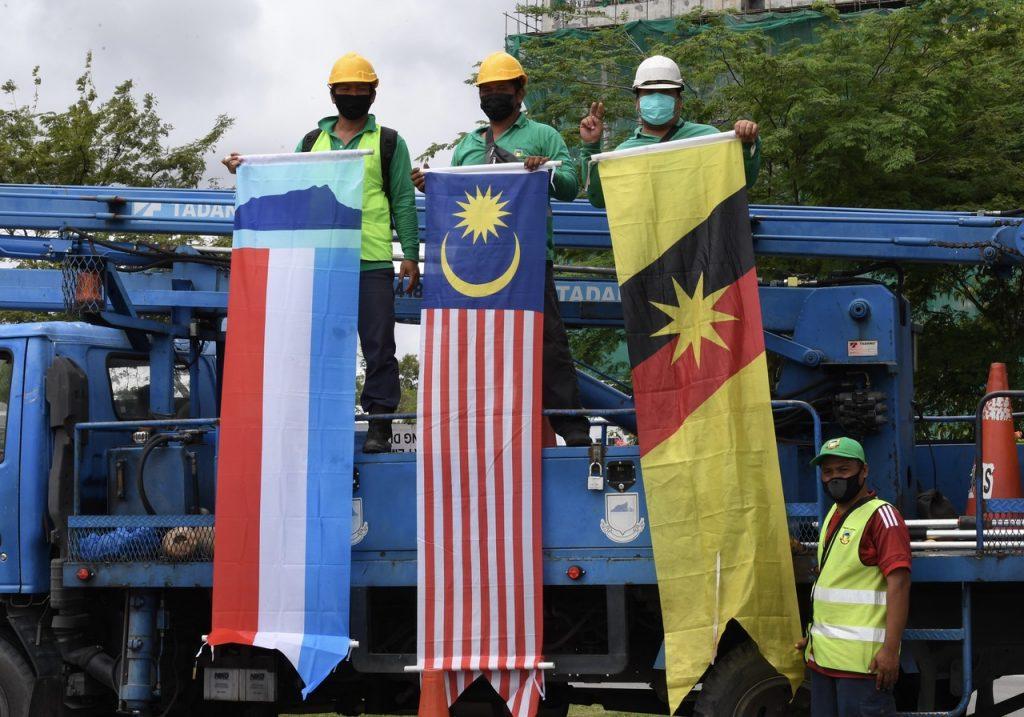The long road from paper to real life for Sabah-Sarawak rights
Observers say constitutional changes alone will not be able to restore the rights of Sabah and Sarawak.
Just In
While constitutional amendments to empower Sabah and Sarawak were unanimously passed in the Dewan Rakyat late last year, political observers say it will take more than revisions on paper to effect any real change in the issues involved.
The Constitution (Amendment) Bill 2021 was passed with a two-thirds majority after its second reading in the Dewan Rakyat on Dec 14 – only the second time that MPs had voted unanimously in support of a bill to amend the constitution, after the Undi 18 bill in 2019.
Law minister Wan Junaidi Tuanku Jaafar said the bill proved that Sarawak had a special status in the federation and would help reinstate its economic and territorial rights, especially in four major and non-negotiable areas: immigration rights, rights to taxation, protection rights within continental shelves, and state sovereignty over sea subsoil.
But Sarawak analyst James Chin said constitutional changes alone would not be able to accomplish much in this regard.
“In terms of MA63, I don’t think it can be done, especially the final four items,” he said, referring to the Malaysia Agreement 1963.
He said the state government had been “chasing” the federal government as the latter had taken much of the land in Sarawak meant for public development, adding however that nothing appeared to have come of this.
Veteran Sarawak observer Jayum Jawan agreed that major changes had yet to be seen.
“Policies do not change just because a ruling party has gone through an election period,” he told MalaysiaNow.
“Not even if leaders or ministers are changed, or one or two men have been dropped or recruited into the Cabinet.”
While the Gabungan Parti Sarawak (GPS) government led by premier Abang Johari Openg had succeeded to some extent in extracting concessions by changing legislation relating to MA63, he said, the role of Sarawak in the aftermath of this had yet to be seen or felt by the people themselves.
Both Sabah and Sarawak have long been seen as suffering the loss of their special territorial rights.
Many had hoped that the recent amendments would pave the way for the restoration of these rights within the Malaysian constitutional order.
But experts agree that much remains to be done.
“Under the seven Federal Constitution laws and seven protective municipal laws of Sarawak, various offending matters need to be amended and repealed,” Sarawak legal expert Alex Ying said.
Yet this too would be far from straightforward as constitutional amendments require two-thirds support in the Dewan Rakyat.
At the moment, Sabah and Sarawak together hold about 25% of the 222 seats in the Dewan Rakyat. Sabah has 25 MPs while Sarawak has 31.
Ying said the federal government should restore the original reading of Article 46 of the constitution, to ensure equitable representation.
According to the original reading, states in the peninsula or Malaya and the federal territories cannot hold more than 65.4% of seats in Parliament.
But Wan Junaidi told MalaysiaNow that Putrajaya could not simply amend the law as the review of seats is carried out only once in seven years.
“The last distribution review for Sarawak was in 2015, and for Sabah in 2017,” he said.
“This means that Sarawak can only look to increase its seats in 2023.”
Wan Junaidi also said that neither the constitution nor MA63, the Inter-Governmental Committee (IGC) Report 1962 or the Cobbold Commission state that Sabah and Sarawak must hold a third of the seats in Parliament.
“The one-third seats is only mentioned in the IGC report,” he added. “This states that the proportion of the number of seats allocated for Sarawak and Sabah should be maintained.”
Subscribe to our newsletter
To be updated with all the latest news and analyses daily.
